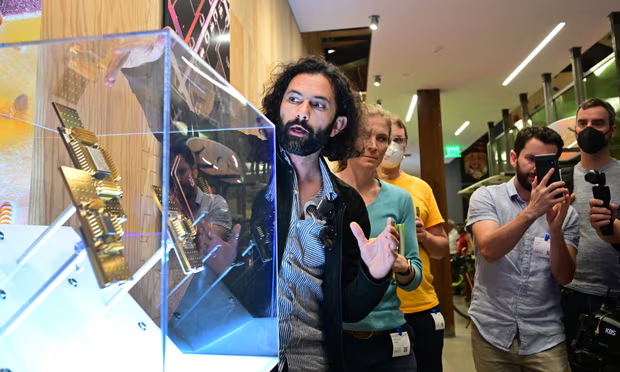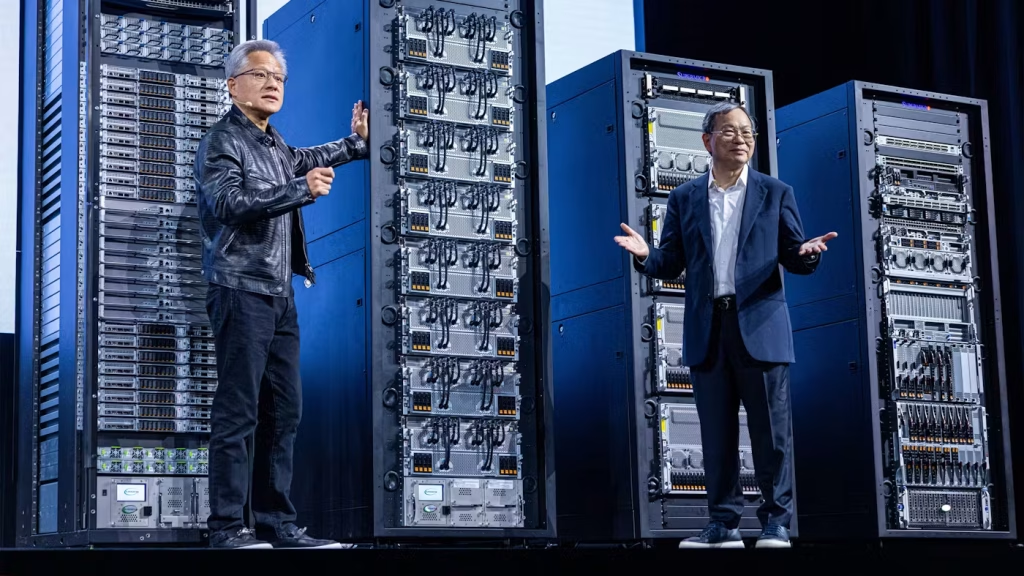Google unveils Willow quantum computing chip

In a groundbreaking announcement, Google has revealed its new quantum computing chip, Willow, a major step toward revolutionizing the world of technology. The chip, which is designed to push the boundaries of quantum computing, has the potential to unlock new possibilities for fields ranging from cryptography to artificial intelligence (AI). Google’s announcement has drawn significant attention from the tech world, with experts praising the development as a significant milestone in the evolution of quantum computing.
Quantum computing has been a hot topic for years due to its promise of solving complex problems that are currently beyond the reach of classical computers. Unlike traditional computers, which use bits to process data as either 0 or 1, quantum computers use quantum bits, or qubits, which can represent both 0 and 1 simultaneously due to a property called superposition. This enables quantum computers to perform certain calculations exponentially faster than classical systems. Despite the potential, quantum computing has remained largely experimental, with few practical, large-scale implementations.
Google’s Willow chip is expected to be a game-changer in this field. It is designed to improve the scalability, reliability, and performance of quantum processors, making it one of the most advanced quantum computing chips to date. Willow is part of Google’s ongoing efforts to lead the quantum computing race, following the success of its earlier quantum processor, Sycamore. Sycamore made headlines in 2019 when it achieved “quantum supremacy” by solving a specific problem faster than the world’s fastest classical computer, a landmark achievement in quantum research.
The Willow chip builds on the lessons learned from Sycamore and other previous quantum processors. One of the key innovations of Willow is its ability to maintain quantum coherence over a longer period of time. Quantum coherence refers to the ability of qubits to maintain their quantum state without being disrupted by their environment, a challenge that has long limited the practical use of quantum computers. Willow’s enhanced coherence means that it can perform more reliable calculations over longer durations, a crucial step toward building practical and scalable quantum machines.
Another significant feature of Willow is its improved error correction capabilities. Quantum computers are extremely sensitive to external noise, which can cause errors in calculations. Error correction has been one of the biggest hurdles in quantum computing, as even the smallest disturbances can lead to inaccurate results. Willow incorporates advanced error-correction techniques that help mitigate these issues, making it more robust and capable of performing complex computations.
Quantum computing could have a profound impact on several industries. For instance, in the field of cryptography, quantum computers could potentially break many of the encryption methods that are currently used to protect sensitive data. While this has raised concerns about the future of cybersecurity, it has also led to the development of quantum-resistant encryption algorithms, which could be the next frontier in securing information in the quantum era.
In addition to cryptography, quantum computing could revolutionize industries like materials science, pharmaceuticals, and finance. By simulating complex molecular interactions, quantum computers could accelerate the discovery of new drugs or materials. In finance, quantum algorithms could optimize trading strategies or improve risk analysis. However, the full potential of quantum computing is still largely theoretical, and much work remains to be done before these applications can be realized on a practical scale.
The unveiling of Willow is also significant in the context of Google’s broader strategy in quantum computing. Google has made substantial investments in this field, and Willow marks a key part of its efforts to maintain its leadership position. The company’s quantum research division, Google Quantum AI, has been working on developing quantum processors for a variety of applications. Willow is seen as a step toward achieving Google’s long-term goal of creating a fully functional, large-scale quantum computer that can outperform classical computers in a wide range of tasks.
The release of Willow also comes at a time when there is growing competition in the quantum computing space. Companies like IBM, Microsoft, and startups such as Rigetti Computing and IonQ are all racing to make breakthroughs in quantum technology. While Willow is a major step forward for Google, the quantum race is still in its early stages, and other companies are pushing forward with their innovations.
Despite the excitement surrounding Willow, it is important to note that the technology is still in its infancy. While the chip shows great promise, practical, large-scale quantum computers are still a long way off. Quantum computing is plagued by numerous challenges, including qubit instability, limited qubit count, and the need for extreme cooling systems to maintain quantum states. Researchers and engineers will need to address these issues before quantum computers can be used for everyday applications.
In conclusion, Google’s unveiling of the Willow quantum computing chip represents a significant advancement in the field of quantum technology. By improving the coherence and error-correction capabilities of quantum processors, Willow brings us closer to realizing the full potential of quantum computing. While the road to practical quantum computers remains long, Willow’s debut is an exciting step forward, and it signals that the future of computing may soon look very different.






